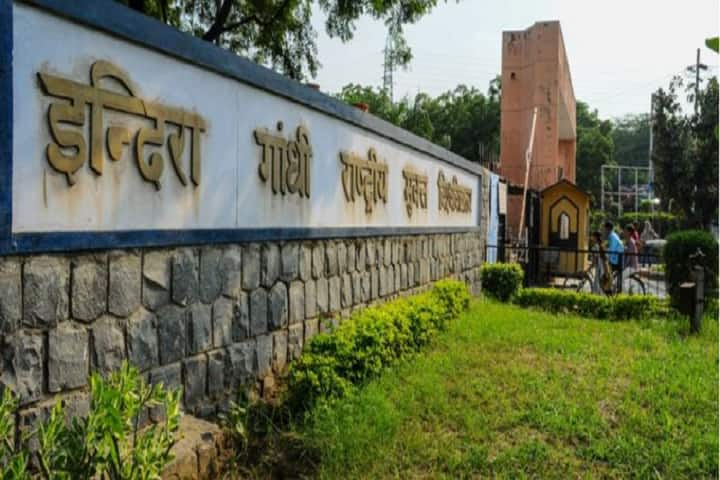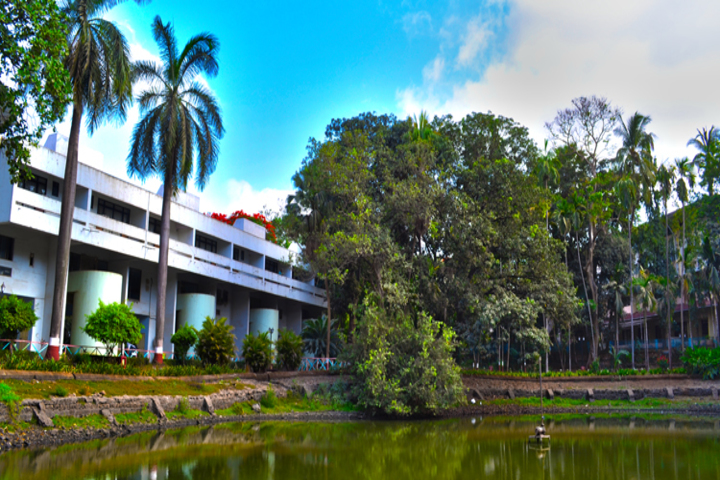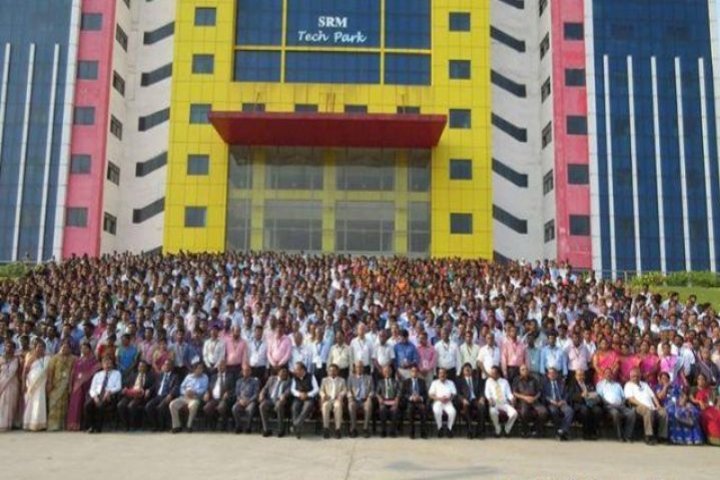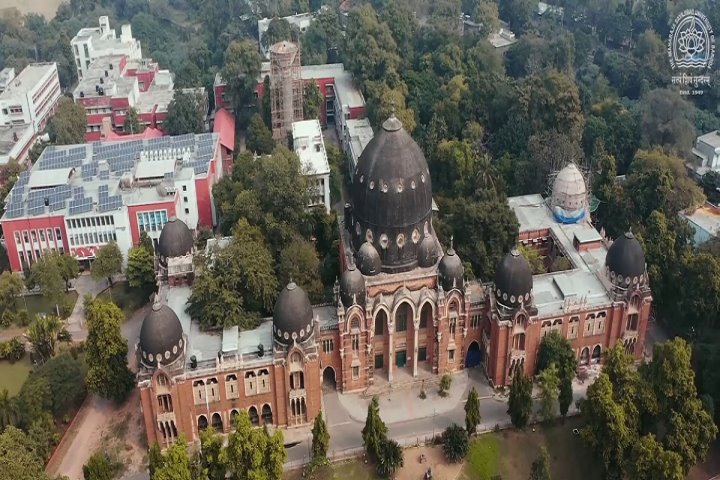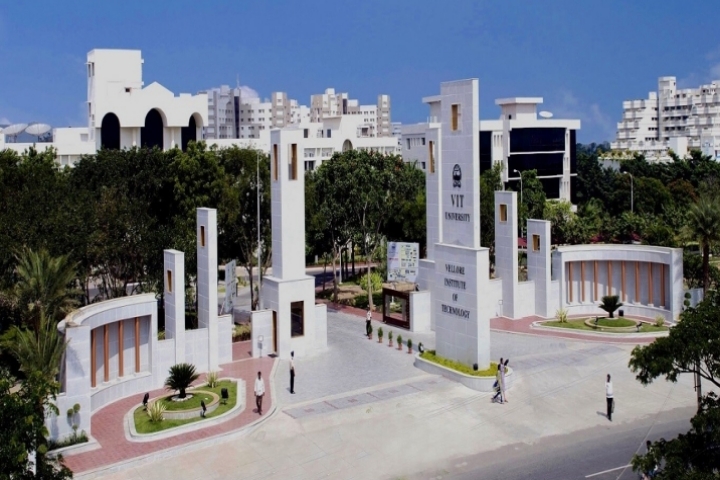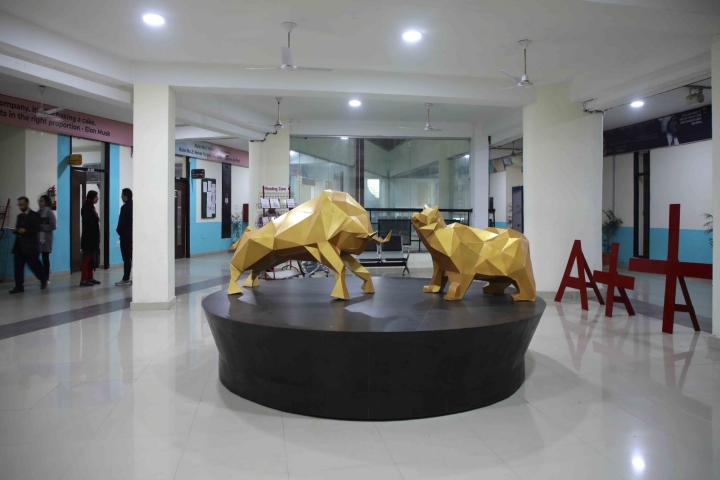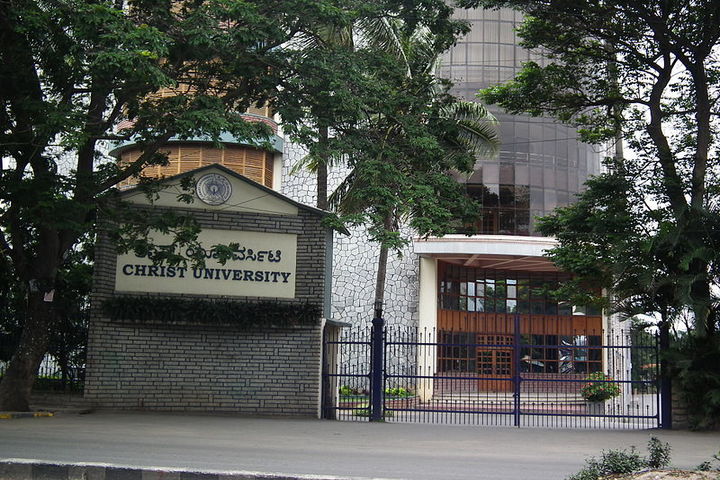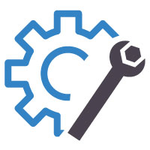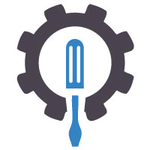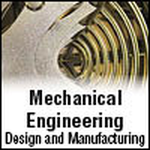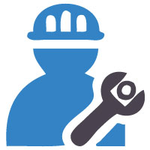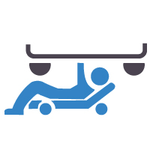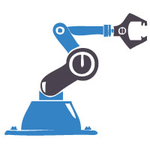
Applied Mechanics Course Details - Fees, Subjects, Syllabus, Duration, Eligibility, Career Scope
Degrees offered: Ph.D, B.E /B.Tech, B.Sc.(Hons), BS, M.S
What is Applied Mechanics
The Applied Mechanics course is designed to provide students with a solid foundation in the basic principles and theories of mechanics. It enables them to analyse and solve complex engineering problems. The Applied Mechanics course covers a wide range of topics, including statics, dynamics, elasticity, fluid mechanics, and vibrations. Students will learn to apply these principles in real-world situations, enabling them to design and assess structures, machines, and systems that are efficient, safe, and reliable. Applied Mechanics courses are offered in B.Tech, M.Tech, MS, Diploma, and PhD degrees.
One of the main objectives of the Applied Mechanics course is to provide students with the necessary tools to predict and understand the behaviour of various materials and structures under different conditions. Students will also acquire the skills needed to tackle practical engineering challenges, ranging from designing bridges to predicting the performance of aircraft and spacecraft. Learn more about the Applied Mechanics course along with the eligibility criteria, colleges, syllabus, entrance exams, scope, career options, and more in the article below.
Highlights - Applied Mechanics
Branch Name | Applied Mechanics |
Degree | B.Tech, Diploma, MS, M.Tech, PhD, |
Duration | 4 Years (UG) |
Eligibility | UG: 10+2 |
Admission Process | Entrance Exam/Direct Admission |
Top Entrance Exams | JEE Main, JEE Advanced, GATE |
Average Course Fees | Rs 5 Lakhs p.a. |
Top Colleges | Amrita Vishwa Vidyapeetham, Amritapuri, IIEST Shibpur, MNNIT Allahabad, VNIT Nagpur, Government Polytechnic, Waghai, Government Polytechnic, Valsad, NIT Surathkal, SVNIT Surat |
Career Options | Aerospace Engineer, Automotive Engineer, Biomedical Engineer, Civil Engineer, Materials Engineer |
Average Salary | Rs 6 Lakhs |
Recruiting Companies | Boeing, TCS, Siemens, GE, Airbus, Reliance Industries |
Specialisation or Similar Ones
Applied Mechanics is a diverse and dynamic field that encompasses various specialisations. Each specialisation focuses on different aspects of mechanics and their applications in the real world. As students embark on their journey through an Applied Mechanics course, they have the opportunity to delve into these specialisations and develop expertise in their chosen area of interest. Let us have a look at some of the top specialisations of Applied Mechanics.
Solid Mechanics
Fluid Mechanics
Structural Dynamics
Computational Mechanics
Biomechanics
Applied Mechanics courses offered by colleges in India are mentioned below:
B.Tech in Applied Mechanics | M.Tech Applied Mechanics |
M.Tech Research Applied Mechanics Engineering | MS Applied Mechanics |
MS Research Applied Mechanics | Diploma in Applied Mechanics |
Ph.D Applied Mechanics and Hydraulics | Ph.D Applied Mechanics |
Top Applied Mechanics Colleges in India
There are several colleges in India offering Applied Mechanics courses at UG and PG levels. Students can pursue Applied Mechanics courses from these Applied Mechanics colleges at a rational cost. Mentioned below is the list of the top Applied Mechanics colleges in India offering Applied Mechanics courses.
Colleges | Fees |
Rs 5.25 Lakhs | |
Rs 10.05 Lakhs | |
- | |
- | |
- | |
- | |
- | |
- | |
- | |
- |
Top Private Applied Mechanics Colleges in India
Several private colleges and institutes in India offer applied mechanics courses at undergraduate and postgraduate levels. Amrita Vishwa Vidyapeetham, Amritapuri Campus is the top private college that offers an Applied Mechanics course (M.Tech Applied Mechanics).
Top Government Applied Mechanics Colleges in India
Many Government colleges in India offer applied mechanics courses to interested students.
Attending these Government Applied Mechanics colleges is more affordable than private colleges. The table below lists the top government Applied Mechanics colleges in India offering Applied Mechanics courses.
IIT Delhi | Rs 5.25 Lakhs |
IIT Madras | Rs 10.05 Lakhs |
SVNIT Surat | - |
NIT Surathkal | - |
VNIT Nagpur | - |
MNNIT Allahabad | - |
IIEST Shibpur | - |
Government Polytechnic, Valsad | - |
Government Polytechnic, Waghai | - |
Eligibility Criteria (UG & PG) of Applied Mechanics
Embarking on a journey in the fascinating field of Applied Mechanics requires a strong foundation in the fundamentals of science and engineering. To ensure that students are well-prepared for the challenges of an Applied Mechanics course, educational institutions have set specific eligibility criteria for admission. Here, we will delve into the Applied Mechanics course eligibility, outlining the educational requirements, and documents needed to secure a spot in this prestigious programme.
Eligibility Criteria for UG Courses
To be eligible for Applied Mechanics courses at the undergraduate level, aspirants must have completed their higher secondary education (10+2) or an equivalent level of education from a recognised board. A strong foundation in subjects such as mathematics, physics, and chemistry is essential, as these disciplines form the basis for understanding the principles of mechanics.
Candidates should have passed 10+2 in subjects such as mathematics, physics, and chemistry.
Candidates also must perform well in national or state-level entrance exams such as JEE Main, JEE Advanced, or state-specific engineering entrance exams.
Top Entrance Exams for UG Courses
To secure admission into a reputable institution, candidates must perform well in national or state-level entrance exams, such as the Joint Entrance Examination (JEE) Main, JEE Advanced, or state-specific engineering entrance exams. These exams assess the applicants' aptitude in mathematics, physics, and chemistry.
JEE Main: The JEE Main is a national-level entrance exam conducted by the National Testing Agency (NTA). It is a crucial exam for students seeking admission to top engineering institutions such as NITs, IIITs, and other Centrally Funded Technical Institutes (CFTIs).
JEE Advanced: The JEE Advanced is the second phase of the JEE examination conducted by the Indian Institutes of Technology (IITs) across India. Students who clear the JEE Main are eligible to appear for the JEE Advanced, which is the gateway for admission into the prestigious IITs.
MHT-CET: The MHT-CET (Maharashtra Common Entrance Test) is a state-level entrance exam conducted every year. Through this exam, candidates will get admission to degree courses in Engineering and Technology, Pharmacy, and Pharm.D.
KCET: The KCET (Karnataka Common Entrance Test) is another state-level entrance exam conducted for admission to Government and Private institutions in the state of Karnataka. To apply for KCET, candidates must pass their class 12/PUC examination from a recognised University.
BITSAT: The BITSAT (Birla Institute of Technology and Science Admission Test) is an institution-specific entrance exam conducted for admission to BITS campuses - BITS Pilani, BITS Hyderabad, and BITS Goa.
Eligibility Criteria for PG Courses
To be eligible for a Master in Applied Mechanics in India, candidates must meet the eligibility criteria defined by universities. The Master in Applied Mechanics eligibility criteria are as follows:
A Bachelor's degree in a relevant field (Mechanical Engineering/ Civil Engineering/ Physics) from a recognised university.
A strong foundation in the principles of mechanics is essential.
Candidates must have secured a minimum aggregate percentage or CGPA in their Bachelor's degree, as specified by the institution they are applying to.
Candidates must also clear national/ institutional level entrance exams, such as GATE or other institution-specific exams.
Top Entrance Exams for PG Courses
Pursuing a Master's in Applied Mechanics in India requires students to clear entrance exams that evaluate their aptitude in mathematics, physics, and engineering. Aspirants must appear in national/ institutional/institution-level entrance exams, which analyses their aptitude in mathematics, physics, and engineering.
GATE: The GATE (Graduate Aptitude Test in Engineering) exam is the most important entrance exam for students seeking admission into a Masters in Applied Mechanics program in India. It is a national-level exam conducted jointly by IITs and IISc on behalf of the National Coordination Board (NCB).
IIT JAM: The IIT JAM is an entrance exam conducted by the Indian Institutes of Technology (IITs) for admission into their M.Sc. and integrated M.Sc.-PhD programmes in various science and engineering disciplines.
College Predictors VIEW ALL
Scope of Applied Mechanics in India and Abroad
The scope and job prospects in Applied Mechanics are promising, as this field is constantly evolving and in demand across various industries. Applied Mechanics graduates can find employment with multinational corporations, government organisations, research institutions, and consulting firms. There is also a growing need for experts in Applied Mechanics in emerging areas such as renewable energy, advanced materials, and robotics.
Moreover, after completing a course in Applied Mechanics, graduates can find employment in a variety of industries including Aerospace, Automotive, Civil Engineering, Biomedical Engineering, Energy, Manufacturing, Research and Development, and others.
Students also liked
Course Subjects
An Applied Mechanics course offers an in-depth exploration of the principles and theories that govern the motion of bodies and materials. By understanding these concepts, students will be better equipped to design, analyse, and optimise various engineering systems. As Applied Mechanics is a vast course, having an understanding of Applied Mechanics subjects and syllabus will be beneficial for you. Mentioned below are the Applied Mechanics subjects covered in UG and PG Applied Mechanics courses.
Types of Stresses and Strains | Hooks law and Young's modulus |
Stresses in Composite Section | Modulus of Rigidity |
Temperature Stress on Composite Barsimple Problems | Basic Materials Science |
State Laws of Friction | Moment of Inertia |
Methods To Find Moment of Inertia Plane Area | Application of Biomaterials |
| Types of Fillet and Butt Welds | Types of Spring |
| Types of Beams | Finite Volume Method for Diffusion Problems |
| Engineering Mechanics | Centroid and Centre of Gravity |
Careers in Applied Mechanics
For those who have completed an Applied Mechanics course in India, a world of diverse and exciting career opportunities await. Applied Mechanics graduates can look forward to a wide range of rewarding career opportunities across various industries. By focusing on the skills and knowledge required for each role, they can set themselves up for success and make the most of their Applied Mechanics course.
Here are some of the top career options after an Applied Mechanics course.
An Aerospace Engineer designs and analyses aircraft, spacecraft, and related components. He or she develops new ideas and technologies that can be used in defence systems, aviation, and spacecraft. | |
Automotive Engineer | An Automotive Engineer is a professional who develops vehicles, engines, and other automotive systems. He also works in the after-sale care of vehicles, making repairs and inspections. |
Biomedical Engineers apply their knowledge of Applied Mechanics to analyse and design buildings, bridges, and other infrastructure projects. They deal with tissue engineering, molecular biology, physiology, and mathematics. | |
Renewable Energy Engineer | Renewable Energy Engineers develops and optimises systems such as wind turbines and solar panels. They use vital scientific, mathematical, and engineering principles to devise new clean energy methods. |
Materials Engineers are responsible for material selection, process design, and quality control in the production of goods. They also work within their field of expertise and choose a specific kind of metal or material to work on. |
Upcoming trends
The field of Applied Mechanics is ever-evolving, with new and innovative research paving the way for advancements in various industries. The trending topics in Applied Mechanics continue to push the boundaries of innovation and inspire new applications across a range of industries. By staying informed about these exciting developments, professionals and enthusiasts alike can stay ahead of the curve and contribute to the advancement of this dynamic field. Here are some of the latest developments and trends in the field of Applied Mechanics:
Multiscale Modeling and Simulation: This is an exciting development in Applied Mechanics that aims to bridge the gap between different scales of analysis, from the atomic level to macroscopic structures. This approach enables researchers to investigate the behaviour of materials and structures in more detail, leading to improved designs and enhanced performance.
Additive Manufacturing (3D Printing): Additive manufacturing, also known as 3D printing, has revolutionised the way we create products and components. This technology allows for the production of complex geometries, customised designs, and the use of a wide range of materials in manufacturing processes.
Smart Materials and Structures: Smart materials and structures have the ability to sense, respond, and adapt to changes in their environment. This unique property enables the development of innovative applications in various fields, such as aerospace, automotive, and civil engineering.
Job Profiles and Top Recruiters
Applied Mechanics graduates are in high demand across various industries owing to their versatile skill set and expertise. Upon successful completion of an Applied Mechanics course, graduates can find employment in diverse industries and sectors. A career in Applied Mechanics offers a wide range of job opportunities, excellent prospects for growth, and competitive salaries. By developing the necessary skills and staying abreast of advancements in the field, graduates can pave the way for a successful and fulfilling career in this dynamic domain.
The top recruiters for Applied Mechanics graduates offer diverse and exciting opportunities for career growth and development. Mentioned below are some of the top recruiters that hire Applied Mechanics graduates.
General Electric
Siemens
Boeing
Tata Consultancy Services (TCS)
Airbus
ABB
Larsen & Toubro (L&T)
Reliance Industries
General Motors
Schlumberger
Average Salary
The salary packages in Applied Mechanics are more competitive and graduates can earn lucrative remunerations with great career prospects. The table below lists average Applied Mechanics salary trends associated with each Applied Mechanics job role. The salary trends mentioned in the table are for reference purposes. Please treat them as such. Actual salaries may vary depending on respective candidates, employer, job location, and various other factors.
Job Profiles | Average Salary |
Aerospace Engineer | Rs 9 lakhs p.a. |
Automotive Engineer | Rs 7.5 lakhs p.a. |
Civil Engineer (Structural) | Rs 6.5 lakhs p.a. |
Biomedical Engineer | Rs 6 lakhs p.a. |
Renewable Energy Engineer | Rs 7.5 lakhs p.a. |
Materials Engineer | Rs 6 lakhs p.a. |
Research Scientist | Rs 9 lakhs p.a. |
Engineering Consultant | Rs 9.5 lakhs p.a. |
Required Skillset for Applied Mechanics
Pursuing an Applied Mechanics course requires a diverse set of skills that are essential for success in the field. Mastering these skills is crucial for students pursuing an Applied Mechanics course as they contribute to a comprehensive understanding of mechanical engineering principles and their applications. By developing these skills, students will be well-equipped to tackle the challenges and opportunities that the field of Applied Mechanics has to offer. The table below lists some of the most important skills needed for the course.
Problem-solving | Analytical thinking |
Data analysis | Technical writing |
Understanding of physical principles | Attention to details |
Collaboration | Decision-making |
Course Curriculum for Applied Mechanics
The Applied Mechanics course curriculum covers an up-to-date, comprehensive overview of the Applied Mechanics course. The curriculum provides students with a clear roadmap for success in their academic journey. By mastering the various topics and sub-topics covered in the Applied Mechanics course, students will be well-prepared for a fulfilling career in the exciting field of Applied Mechanics. Mentioned below is the list of topics covered in the Applied Mechanics course curriculum.
Linear Algebra
Differential Equations
Atomic Structure
Chemical Bonding
Orthographic Projections
Isometric Drawings
Partial Differential Equations
Tensor Analysis
Modal Analysis
Popular Applied Mechanics Entrance Exams in India
Frequently Asked Questions (FAQs)
Question: What are the top recruiting companies that hire Applied Mechanics students?
Answer :
The top recruiting companies that hire Applied Mechanics students are General Electric, Siemens, Boeing, TCS, Airbus, ABB, and Larsen & Toubro (L&T), among others.
Question: What are the top career choices for Applied Mechanics students?
Answer :
The top career choices for Applied Mechanics students are Aerospace Engineers, Automotive Engineers, Civil Engineers (Structural), Biomedical Engineers, Renewable Energy Engineers, and many more.
Question: What are the skills required for an Applied Mechanics course?
Answer :
The skills required for an Applied Mechanics course are Decision-making, Problem-solving, Data Analysis, Technical Writing, Communication, and Collaboration.
Question: What are the entrance exams required for Applied Mechanics?
Answer :
The entrance exams required for Applied Mechanics are JEE Main, JEE Advanced, GATE, BITSAT, IIT JAM, BITS HD, and MHT CET.
Question: What are the degree programmes for Applied Mechanics courses?
Answer :
Some of the degree programmes for Applied Mechanics courses are B.Tech Aerospace Engineering and M.Tech Applied Mechanics with Specialization in Biomedical Engineering Dual Degree, M.Tech Applied Mechanics, MS Research Applied Mechanics, Diploma in Applied Mechanics, PhD Applied Mechanics, and more.
Question: What are the benefits of pursuing Applied Mechanics?
Answer :
Pursuing an Applied Mechanics course offers numerous benefits. They include versatile skill sets such as problem-solving, analytical thinking, and data analysis; high demand; broad application; innovation and growth, and competitive salary.
Question: Who is an Applied Mechanics Analyst?
Answer :
An Applied Mechanics Analyst is a professional who specialises in analysing the behaviour of materials, structures, and systems under various conditions. They use their knowledge of Applied Mechanics principles to develop models, perform simulations, and conduct experiments to understand and predict the performance of mechanical systems. Applied Mechanics Analysts work in various industries, such as aerospace, automotive, civil engineering, and manufacturing, contributing to the development of innovative solutions.
Question: Is Applied Mechanics difficult?
Answer :
Applied Mechanics can be challenging owing to its interdisciplinary nature and the need for a strong foundation in physics, mathematics, and engineering principles. However, with dedication, hard work, and the development of essential skills such as problem-solving, analytical thinking, and data analysis, students can excel in the field.
Question: What are some examples of Applied Mechanics?
Answer :
Some examples of Applied Mechanics include structural analysis, fluid mechanics, materials science, robotics and control systems.
Question: What is the purpose of Applied Mechanics?
Answer :
The purpose of Applied Mechanics is to apply the principles of physics, mathematics, and engineering to understand, predict, and optimise the behaviour of materials and structures under various conditions. This field of study aims to develop innovative solutions to real-world engineering problems, leading to advancements in areas such as aerospace, automotive, civil engineering, and manufacturing.



